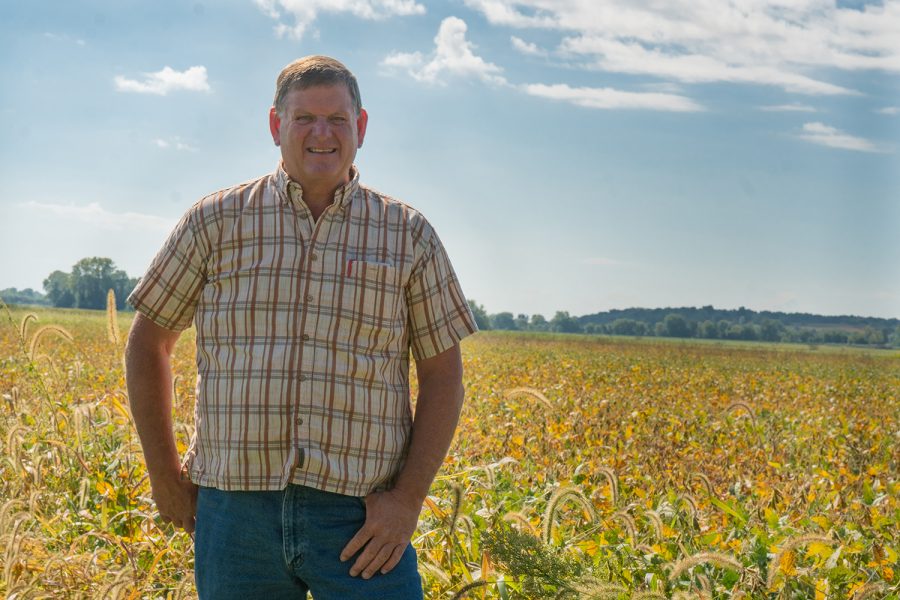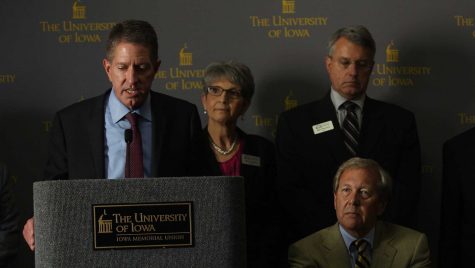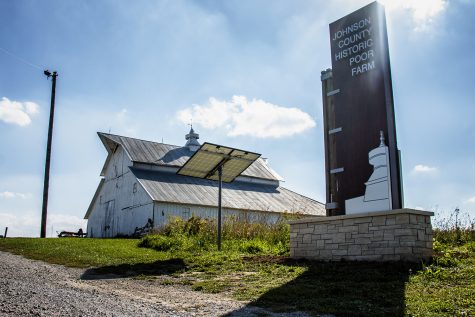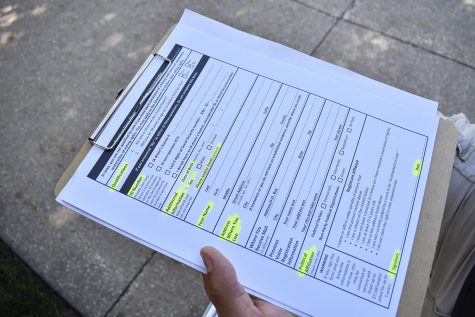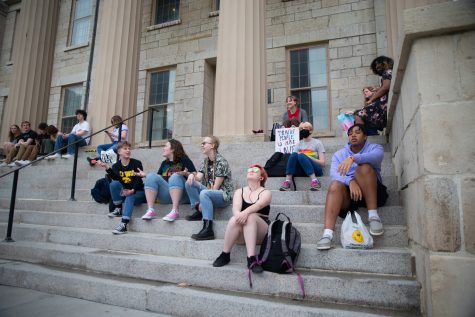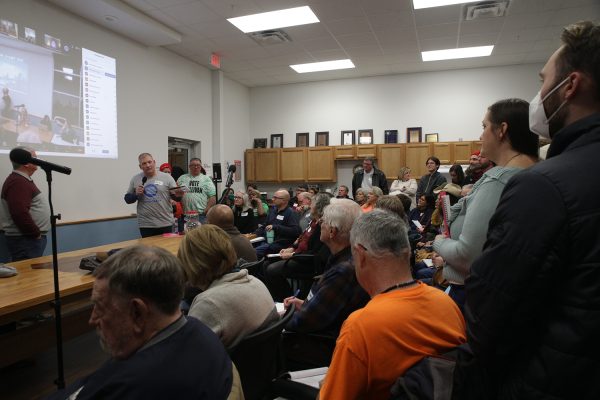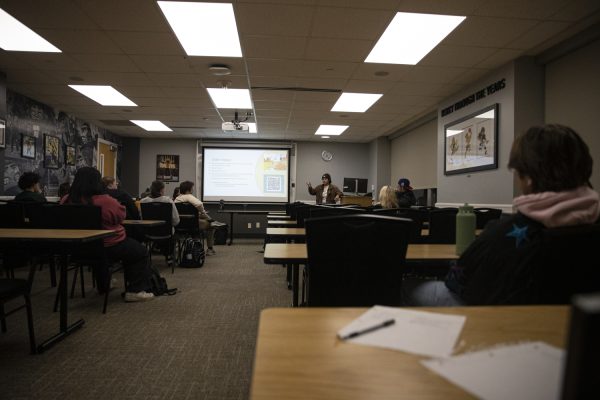Iowa Sen. Kevin Kinney looks to help agriculture with hemp production in seeking reelection,
Sen. Kevin Kinney, D-Oxford, is running for a second term in the Iowa Senate, where he hopes to continue to pursue legislation related to agriculture and law enforcement.
Kevin Kinney stands in a field on Sept. 14, 2018 in Iowa City outside of Midtown Family Restaurant.
September 18, 2018
After completing his first term in office, Sen. Kevin Kinney, D-Oxford, seeks to resume his legislative work on a variety of issues, ranging from law enforcement to industrial-hemp production.
The Democratic incumbent faces Republican opponent Heather Hora in the upcoming midterm election. The Senate district covers Keokuk County and portions of Johnson and Washington Counties.
Kinney, 55, has taken on industrial-hemp production as one of his top priorities. He helped introduce a bill last spring to allow industrial-hemp farming in Iowa, which passed 49-0 in the Senate but stalled in the House. He stressed that his goal is to grant farmers the ability to legally grow the plant.
He sees hemp as an alternative crop to stimulate the rural Iowa economy, because Iowa is one of 11 states that does not allow hemp cultivation. The crop can be used in 25,000 products, according the National Conference of State Legislatures, and it was grown in many states, including Iowa, during World War II.
“Industrial hemp is a billion-dollar industry here in the United States,” Kinney said. “That would be an economic driver for rural Iowa and be able to create some jobs in rural Iowa.”
RELATED: Iowa soybean farmers feeling the heat of tariffs
Kinney’s background is in law enforcement, having served around 30 years with the Johnson County Sheriff’s Office. There, he served as a detective in charge of investigations, and in his spare time, he was a member of the Clear Creek/Amana School Board for three terms. He retired in 2015 after being elected to the state Legislature.
His legislative initiatives tend to mirror his law-enforcement background. As a member of the Senate Judiciary Committee, Kinney said he was involved with extending the statute of limitations on sexual abuse, creating the Office of Human Trafficking in the Public Safety Department, and creating funding and legislation for the training of law-enforcement officers.
Human-trafficking issues have been at the forefront of his work for years, and Kinney said he became interested in running for office while involved in a human-trafficking case as an investigator and an advocate for laws in Des Moines.
Kinney also builds on his farming background as a ranking member of the Agriculture Committee. He sits on the Ethics and Natural Resources Committees as well.
Kinney believes in the importance of education for growing the economy, and he said he supports funding for kindergarten through 12th grades, community colleges, and state universities.
“We need to get a skilled workforce here, which goes back to education,” he said. “It’s so intertwined.”
The senator favors a health-care system controlled by the state instead of the current privatized Medicaid system, which is led by contracted managed-care organizations.
“We have companies that have gone out of business because they were not being paid by the managed-care organizations,” Kinney said. “We have patients who are fighting to get specialized wheelchairs or other equipment that is required for their health.”
RELATED: Dueling views on Medicaid shape race for Iowa governor
Kinney said the Legislature needs to improve and fund mental-health legislation, take a closer look at tax breaks, and increase funding for clean water.
Kinney emphasized that he believes he can continue being productive in the Iowa Senate because of his focus on bipartisanship.
“A lot of the legislation I’ve worked on, I’ve worked across party lines trying to come to a compromise in which legislation is passed,” he said. “The industrial-hemp legislation was introduced by a Republican senator and me.”
In his time away from the capital city, Kinney lives and farms near Oxford, Iowa, a rural community about a half-hour’s drive from Iowa City.
“Voting does have its consequences,” he said. “The people are going to decide what agendas they want to address by the way that they vote and the people they elect.”



